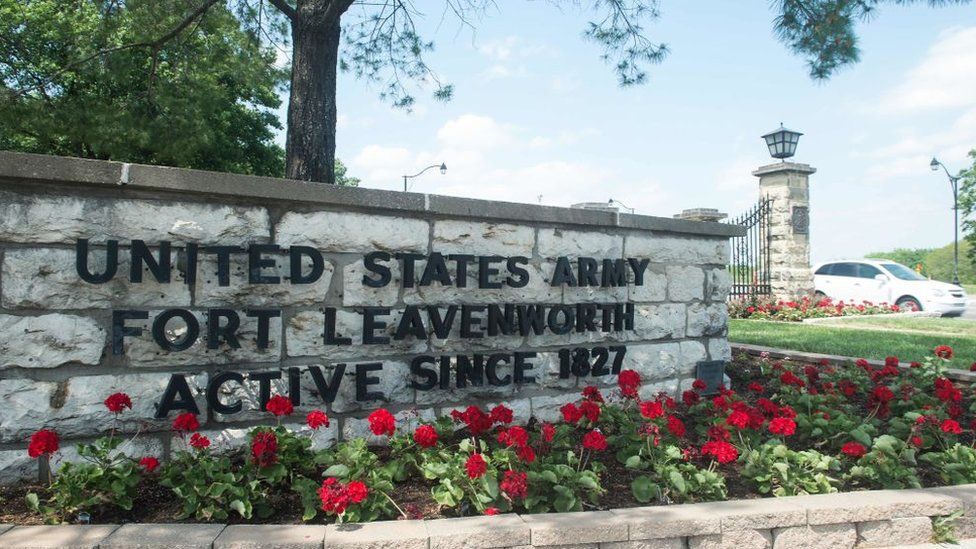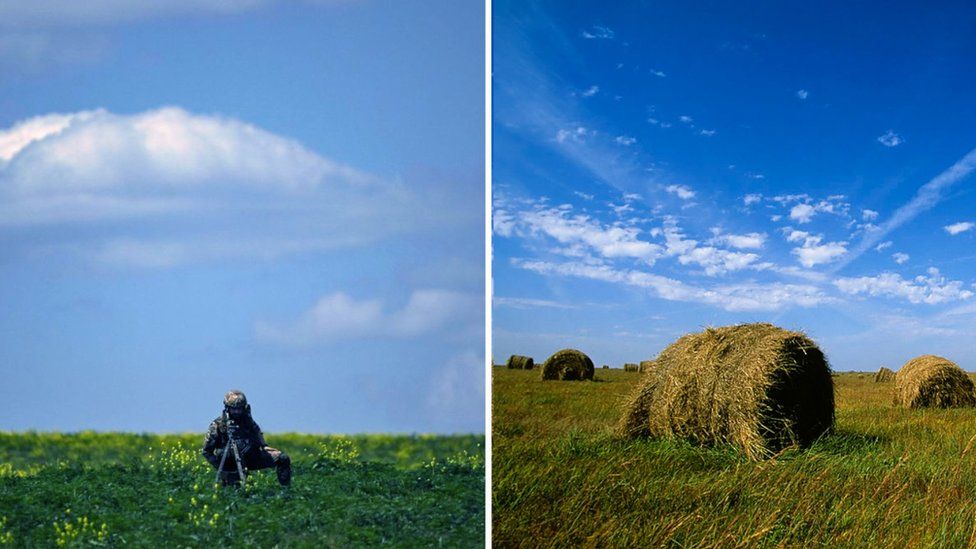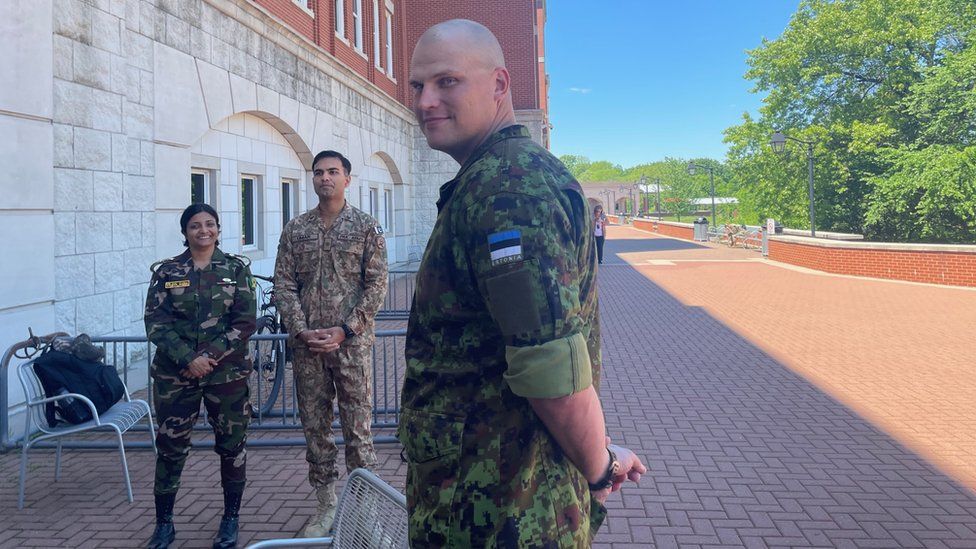.
“Ukrainian officers started coming to Fort Leavenworth [Kansas] in the early 1990s...Kansas fields share similarities with the Donbas."
7/7/2022, “The US army base training Ukrainian fighters," BBC News, Tara McKelvey

“Senior-level Ukrainian officers have been studying in the US state of Kansas, thousands of miles from Russia’s invasion and the battlefields of Donbas.
Outside the Fort Leavenworth army base, wheat fields are starting to turn. Wide, open prairie land, with softly rolling hills, stretches for miles, and the sky is huge.
This quintessentially Kansas landscape has become
the backdrop for generations of international soldiers,
who head to the US base
Ukraine’s deputy interior minister, Anton Herashchenko, has remarked on its similarities to the landscape of Donbas, in the country’s heavily-contested east.
Pentagon spokesman John Kirby says the same: “That part of Ukraine is a bit like Kansas, so it’s a little bit flatter, it’s a little bit more open,” he told media during a press briefing.
Fort Leavenworth has proved to be a valuable training ground
for dozens of Ukrainian soldiers
over the past several decades,
Today,
experts say,
the knowledge they gain there is
helping Ukrainians mount a fierce defence of [their US Colony] their country – in part because of the contrast between the flexibility of American military coursework and the rigid Soviet-style education given to Russian soldiers.

Inside classrooms, chairs are arranged neatly, and look like the kind one would find on campuses across the country, but unlike elsewhere, an electronic sign, a “secure light”, can sometimes be seen blinking. It is marked in bold letters,”secure” and “non-secure”. When information is classified, a light blinks on, with a red background, reminding people that the information can be shared only with those who have clearance.
As of today, more than 8,000 international officers have trained at the base in Kansas,
including some of Ukraine’s top generals.
They include
Oleksiy Nozdrachov, the Ukrainian Armed Forces’ chief of coordination centre in Kyiv, and
Mykhailo Vitaliyovych Zabrodskyi, a military commander who has fought in Donbas.
For Ukrainian students at Leavenworth, lessons are being put into practice back home. A Ukrainian student, a lieutenant colonel, left during the spring semester to join the war.
“He’s in the fight,” said Jim Fain, the director of the International Military Student Division at the college.
“He’s actually been promoted.”
Ukrainian officers started coming to Fort Leavenworth in the early 1990s,
after their nation became independent.
Back then, they studied alongside Russian officers. Then, in 1999, [Yeltsin resigned on 12/31/1999] Russians stopped showing up, about the same time that Hungary, Poland and the Czech Republic joined NATO. [CNN, 12/31/1999, Mr. Putin already had “booming popularity” in Russia when Yeltsin resigned and appointed him interim president 3 months before election]
Mr Fain attributes Russia’s decision not to send soldiers to Leavenworth to [allegedly] increasing tensions over NATO.
This year [2022], the programme for international students has a $7m budget (£5.8m). The officers are chosen by their home countries. About half are funded by their home government, and the others are supported by
grants provided by [US taxpayers] the US State Department to foreign governments.
Since the start of the war in Ukraine,
international training for the Ukrainian troops
has been stepped up.
Some of them have gone to the UK for driving lessons
for armoured vehicles.
Others are in Poland, learning how operate weapons systems
provided by the US [taxpayers].
But their numbers at Leavenworth have remained consistent with years in the past, Mr Fain said.
The training they receive at Fort Leavenworth focuses on
and other aspects of the modern military,
in sharp contrast to
the Soviet-style training that has been
used in Russia,
“Soviet education was
it discouraged independent thinking,”
said Vitaly Chernetsky, a professor at the University of Kansas in Lawrence.
“At Leavenworth, the emphasis is on
an analytical approach.
It creates military specialists
Professors at Leavenworth describe the Soviet model of military training as rigid and authoritarian. One of them, Mahir Ibrahimov, 66, knows first-hand: He studied at a Soviet military school in the 1970s.
Soviet instructors “would stand next to you until you learned,” he said – and if you didn’t, “they would just hit the desk,” he added, making a hard, swiping motion with his arm. “Sometimes you would be hit”.

Ukraine faces a war today in which its defence is outnumbered and outgunned – Russian forces are said to be ten times larger in cities in the Donbas, where heavy fighting continues for control of the region.
But the Ukrainans’ advantage is that they can
think independently on the battlefield,
according to Matt Hofmann, a graduate of the Leavenworth programme
who worked with Ukrainian officers in Afghanistan.
“The Russians are still trying to fight a linear battle with tanks on line, and sticking very much to their doctrine,” he said.
“They can’t handle the chaos that the Ukrainians are sending out”.”
………………………………………………
Added: CNN, 12/31/1999, Mr. Putin already had “booming popularity” in Russia when Yeltsin resigned and appointed him interim president:
“Putin, 47, will now serve as acting president for three months pending presidential elections. That will give him a prominent pulpit from which to exploit his already booming popularity.”
.............

No comments:
Post a Comment